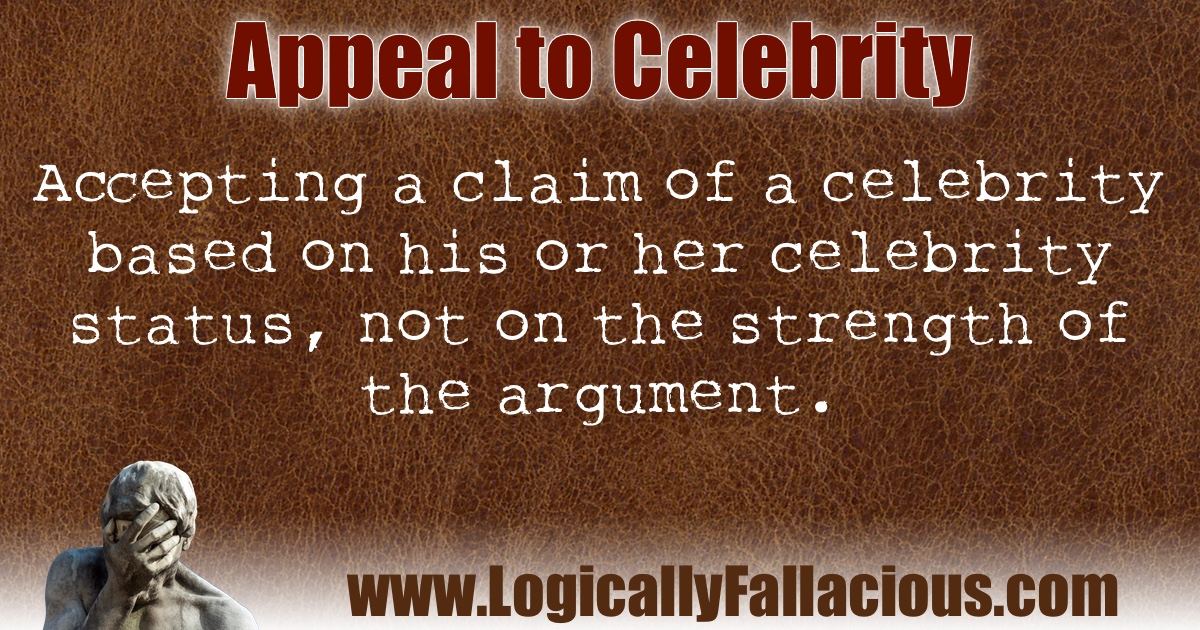Description: Accepting a claim of a celebrity based on his or her celebrity status, not on the strength of the argument.
Logical Form:
Celebrity 1 says to use product Y.
Therefore, we should use product Y.
Example #1:
Tom Cruise says on TV that Billy Boy Butter is the best tasting butter there is. Tom Cruise is awesome -- especially in MI4 when he scaled that building with only one suction glove; therefore, Billy Boy Butter is the best tasting butter there is!
Explanation: Tom Cruise might be awesome, and perhaps he really does think Billy Boy Butter is the best tasting butter there is, but Tom is no more an authority on the taste of butter than anyone else; therefore, to accept the claim without any other evidence or reason is fallacious.
Example #2:
Mike Seaver from that 80’s sitcom, “Growing Pains”, is really cool. He is now a born-again Christian and apologist for the faith. Therefore, you should really believe what he has to say!
Explanation: Mike Seaver is awesome, but Kirk Cameron, the actor that plays that character? Even if Kirk were super duper (which he might be, I don’t know him), his views on the truth of religion are equally valid as yours, or anyone else's who determines what he or she considers to be the truth through faith.
Exception: Some celebrity endorsements are authentic, where the celebrities are motivated by the love of the product itself, not the huge check they are getting for pretending to like the product. When these products are directly related to their celebrity status, then this could be seen as a valid (but not sufficient) reason for wanting the product.
Honestly, I really can’t think of any examples, but there must be some out there.
Tip: If you are in business and looking for a celebrity to endorse your product, try not to pick one that is likely to be accused of killing his wife and his wife’s lover, then taking off in a white Bronco.
